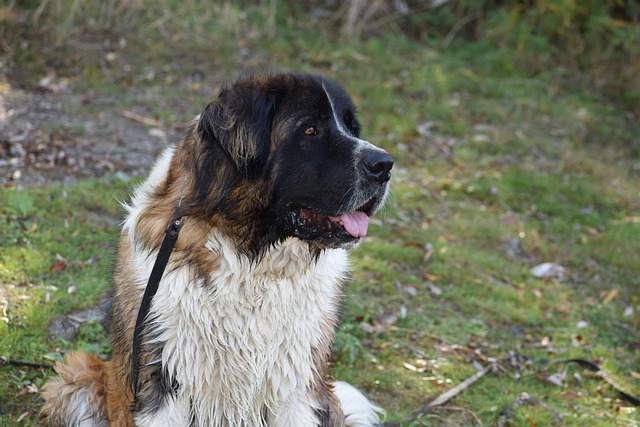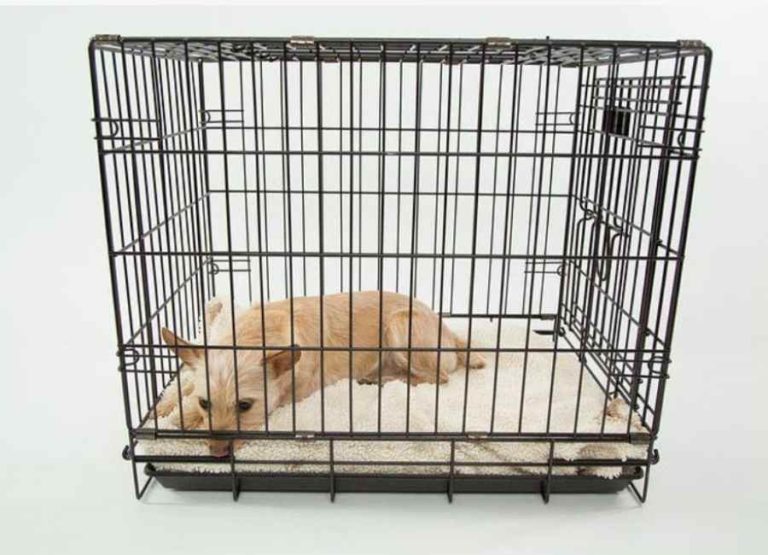Dog Keeps Running Away [Helpful Tips]
![Dog Keeps Running Away [Helpful Tips] Dog Keeps Running Away](https://petcreeks.com/wp-content/uploads/2023/02/Dog-Keeps-Running-Away.jpg)
Does your dog keep running away? Are you constantly searching for your pup, only to find them a few streets away? If so, you’re not alone.
Many dog owners struggle to keep their pups from running away, and it can be a source of frustration.
In this blog post, we’ll discuss the reasons dogs run away, tips for preventing it, and how to keep your pup safe if they do manage to escape.
So, if you’re looking for ways to keep your pup from running away, read on!
Reasons Why Dogs Run Away
Here are some common reasons why your dog keeps running away:
Boredom or lack of exercise
To stay happy and healthy, dogs need regular exercise and mental stimulation.
Dogs may become bored, restless, and attempt to flee their homes or yards if they aren’t given adequate exercise.
Make sure your dog receives adequate mental and physical stimulation to avoid this.
Provide toys and games that will keep their minds active, and take them for regular walks or runs.
Learn more about the benefits of constantly exercising your dog.
Separation anxiety
When dogs are left alone for long stretches of time, they may develop separation anxiety.
They might experience anxiety and tension, which could cause them to act destructively or try to flee in order to find their owner.
Provide your dog with lots of toys and distractions to keep them busy while you’re gone, and gradually desensitize them to being alone.
Learn more about the signs, causes, and prevention of separation anxiety in dogs.
Out of curiosity
Due to their natural curiosity, dogs may be drawn to unfamiliar sights, noises, and smells.
They may follow their noses and stray off in quest of something if they smell anything intriguing.
Make sure your dog has a safe and secure environment so they can’t easily walk off to avoid this.
When your dog is outside, make sure to keep him on a leash or in a fenced-in area.
Lack of attention
Dogs yearn for their owners’ love and affection, they may try to escape from home if they are abused or neglected.
They may seek attention from strangers or other animals if they feel abandoned or ignored, which may cause them to stray.
Spending quality time with your dog and showing them lots of affection will help you avoid this by preventing them from looking for attention elsewhere.
Training issues
Ineffectively trained dogs may not recognize boundaries and may scurry away when they shouldn’t. This behavior can be avoided by training.
To stop them from escaping, teach your dog to comprehend fundamental commands like “stay” and “come,” and reinforce these instructions frequently.
Prey drive
Some dogs may be drawn to wildlife or other creatures because they have a strong prey drive.
They might try to follow them, which puts them at danger of becoming hurt or lost.
If a dog has a high prey drive, it’s necessary to keep them on a leash or in a safe place.
If a dog has a high prey drive, keep it on a leash or in a safe place.
To refocus their interest away from animals or other creatures, think about employing positive reinforcement training.
Sexual instincts
In search of a mate, intact male dogs may flee, and female dogs in heat may also attempt to flee.
One of the most frequent causes of dogs escaping their homes is this instinct, which is natural but can be difficult to regulate.
To lessen the impulse to stray in search of a mate, think about having your dog spayed or neutered.
Learn more about the benefits of spaying and neutering dogs.
Fear or anxiety
Dogs may experience fear or anxiety for a number of reasons, including loud noises from thunderstorms or fireworks or even an aggressive or frightening setting.
Dogs may sense the desire to run away to a safer location in such circumstances.
Make sure your dog has a place to go to when there are thunder or fireworks.
Think about employing calming vitamins or pheromone sprays as a soothing assist.
Territorial behavior
Dogs may stray outside of their regular boundaries in an effort to claim their territory.
As a result, they could become disoriented or stray into strange places.
To protect them from roaming too far, teach your dog to recognize limits and keep them on a leash or in a gated yard.
Unfamiliar surroundings
A dog may become lost and try to find their way back to their usual surroundings if they are taken to a new place.
This is especially valid for dogs who haven’t had much socialization or travel.
To avoid them being confused, make sure your dog is appropriately socialized and is introduced to new situations gradually.
How to Prevent Your Dog from Running Away
Here are some common ways to prevent your dog from running away:
- Keep your dog on a leash: While your dog is outside, put them on a leash. This is one of the easiest and most reliable strategies to stop them from escaping. You will be able to direct their motion and keep them from straying.
- Train your dog: Teach your dog good behavior; a well-behaved dog is less prone to bolt. Simple instructions like “come” and “stay” can keep your dog in check and stop them from escaping.
- Secure your yard: Make sure your yard is secure and that there are no escape routes, like as cracks in the fence. You might also think about employing an invisible fence or putting in a dog-proof gate.
- Supervise your dog: Keep an eye on your dog at all times when they are outside, especially if you are in a strange place. Consider keeping your dog on a long leash or tying them up if they have a history of escaping.
- Keep your dog stimulated: Maintain your dog’s mental and physical stimulation since bored or understimulated dogs are more prone to try to escape. To keep your dog happy and content, make sure they have access to plenty of toys, walks, and playtime.
- Microchip your dog: If your dog manages to get away, having their microchip will make it easier for you to find them. Ensure that the information on your dog’s microchip is current and that they are wearing identifying tags with your contact details.
- Spay or neuter your dog: Dogs who have been spayed or neutered are less likely to attempt to elude their owners in quest of a mate.
- Exercise frequently: Make sure your dog exercises frequently to burn off surplus energy. Well-trained dogs are less likely to try to run away out of boredom or annoyance.
- Reward good behavior: When your dog behaves well, such as by arriving when called or remaining in the yard, compliment and reward them. In order to keep your dog from bolting, use positive reinforcement.
Learn more about stopping your dog from running away.
What to Do if Your Dog Runs Away
If your dog runs away, here are some steps you can take:
- Search the immediate area: Start your search by looking in the nearby vicinity of where your dog was last seen. Look for any familiar parks, streets, and other locations with your dog. If no one has seen your dog, ask your neighbors, neighborhood dog walkers, and other persons you come across.
- Use social media: Post a picture of your dog there and invite your friends and family to do the same. You can also post on pages for lost pets and community groups in your area.
- Speak with nearby veterinary offices and animal shelters: To find out if your dog has been located or taken in by an animal shelter or veterinary clinic in the area, call or go there. Give them a description of your dog and a picture of it.
- Put up posters: Posters should be made with a clear image of your dog, their name, and your contact details. Put them in high-traffic places and close to where your dog was last seen.
- Use a tracking device: If your dog is equipped with one, use it to find out where they are. This is particularly useful if your dog gets lost in a remote or wooded region.
- Stay positive: Strive to have a cheerful attitude and hold onto hope. After going missing, many pets are later located days or even weeks later. If your dog isn’t located after a while, keep looking and spreading the word.
Conclusion
If your dog keeps running away, it can be a cause of distress and frustration.
Taking the time to understand why your pet is running away and taking the necessary steps to prevent it is essential.
With the right combination of patience, consistency, and training, you can help keep your pup safe and enjoying the comforts of home.
Remember, your furry friend needs you to be there for them and keep them safe.






